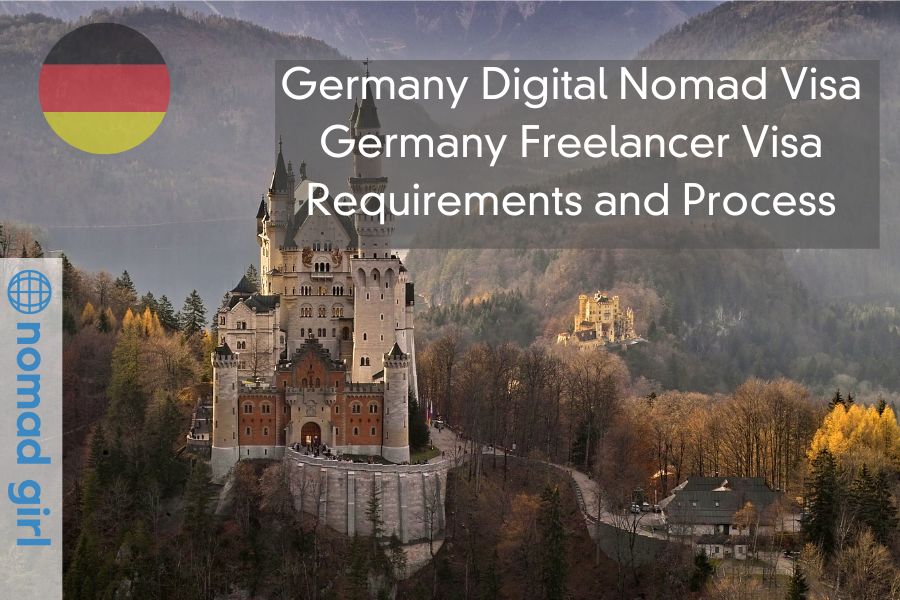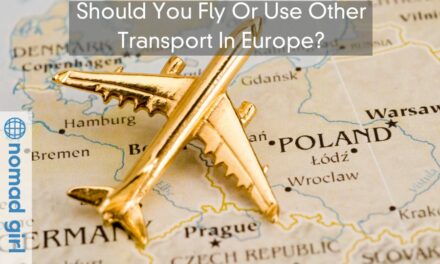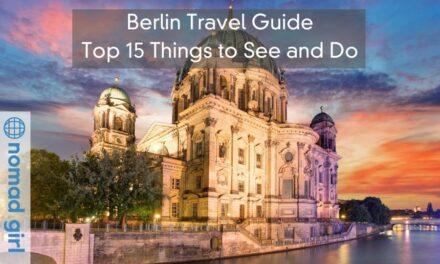Also called the German freelance visa, the Germany digital nomad visa is a residence permit that will allow digital nomads to live in Germany while working remotely. It applies to freelancers and those who want to do business in the country.
Germany is joining several other European countries to regulate remote work and encourage young professionals and entrepreneurs to move to the country. The country’s declining birth rate is one of the main reasons it’s pushing for programs that will attract young residents.

The Germany digital nomad visa is not just a visa. It is a residence permit that will let you live in the country temporarily and a great stepping stone towards achieving permanent residency. Although the entire process of becoming a permanent resident in Germany takes about three years, some foreigners have used the German freelance visa to start living in Germany while working remotely.
So, if you want to live as a digital nomad in Germany, the first step is to apply for a Germany digital nomad visa. Getting one can be tricky and often frustrating due to German bureaucracy. But if you want to fulfil your dream of living in one of Europe’s most beautiful countries, it’s all worth it. Considering car hire in Munich Airport Germany can provide you with the convenience and flexibility to explore the country while meeting the visa requirements and going through the application process.
About the Germany Digital Nomad Visa
The digital nomad visa of Germany is officially called the German Freelancer Visa or Freiberufler Visa. It serves as a residence permit, allowing you to live and work in Germany as a freelancer. This visa is divided into two categories:
- Freelancer Entry Visa – also called the National Visa (D), you can apply for this visa from the German embassy or consulate near you. It is only valid for a few months, but it’s what you need to enter Germany and to let the immigration authorities know that your purpose for entering the country is to work as a freelancer. Once you have entered Germany using this visa, you can trade it for the Freelancer Residence Permit, so you can continue living in Germany while working as a freelancer.
- Freelancer Residence Permit – this residence permit will let you live and work in Germany for the long term. You can apply for this permit from the German Immigration Office once you are already in Germany. Once you receive the Freelancer Residence Permit, the entry visa will no longer be valid.
There are two different types of German Freelancer visas. You should apply according to your occupation. The first type is the freelance employment visa, which is more applicable to digital nomads. It applies to professionals whose occupation has a positive contribution to Germany’s culture and economy. Examples are writers, artists, self-employed doctors, teachers, engineers, and architects. The second type is a self-employment visa, given to those who own or manage a business.
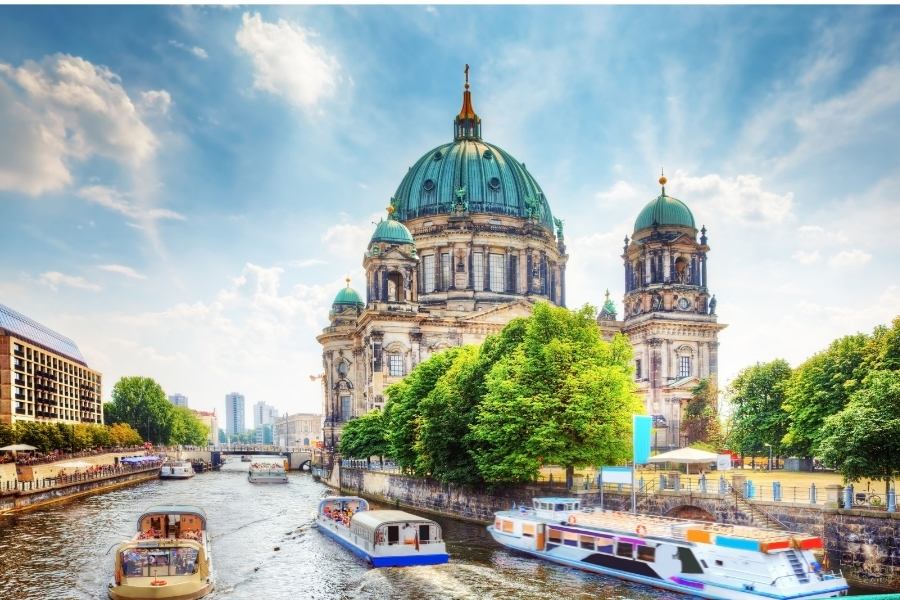
Germany Digital Nomad Visa Eligibility
Anyone who fulfils the prerequisites for the German Freelance Visa and has an eligible professional is qualified to apply for the Germany digital nomad visa. Aside from being an eligible professional, you must meet the following prerequisites:
- There is a regional need or economic interest for your profession.
- You need to show proof you have clients interested in working with you. It can come in the form of a letter from a client indicating their interest in hiring your services.
- Prove you can afford to live comfortably in Germany, which means having an income of at least €9,000 per year.
- You need to have a legal residence in the country. Therefore, before you apply for the Germany digital nomad visa, you must look for accommodation and register the address at a local registration office.
- For those over 45 years old, you must have an adequate pension plan. It means that by 67 years old, you need to have one of the following:
- Monthly pension of €1,332.36, minimum of 12 years.
- Assets worth at least €194,631.
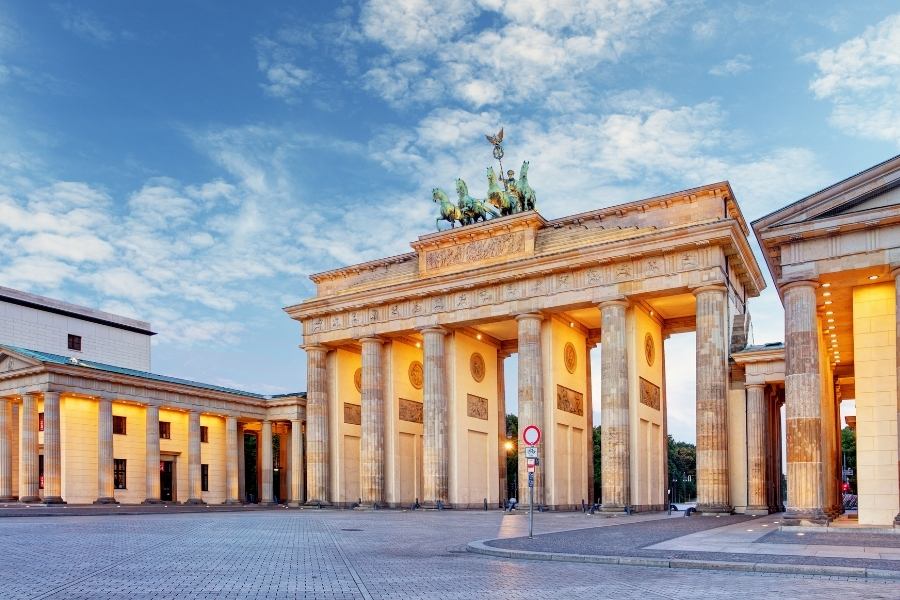
Documents to Submit When Applying for the Germany Digital Nomad Visa
As with applying for any visa, you need to submit some documents when applying for the Germany digital nomad visa. Make sure you have them ready before submitting your application to the German Embassy in your country.
- Passport
- Application form. The form is called the Freelance Residence Permit (Antrag auf Erteilung eines Aufenthaltstitels). Fill out the form correctly.
- Passport-size photo. The photo should be recent and adheres to Germany’s visa photo requirements.
- Proof of income
- Letter of intent from clients. You need at least two letters from clients indicating their intention of hiring you for your services.
- If you are a language teacher or an artist, you need proof of regular income, such as from your bank savings account, regular transfers, etc. You can also submit a declaration of obligation from a third party.
- Your CV
- For university graduates, provide proof of degree from a recognized institution.
- Health insurance – you need health insurance that will cover your medical expenses if you get sick while living in Germany. But since statutory health insurers will not enroll you without a visa, you need to acquire a private insurance plan first and then apply for statutory health insurance later.
- Rental lease confirmation from your landlord.
- Proof of address registration.
- If you are above 45 years old, submit proof of retirement plan, such as your savings, pension rights, assets, etc.
- If you will live in Germany as a business owner, here are the additional requirements to submit:
- Business plan
- Financing plan
- Proof of registration from the Trade Register.
- A letter from a university confirming the education you acquired from the university is relevant to your business.
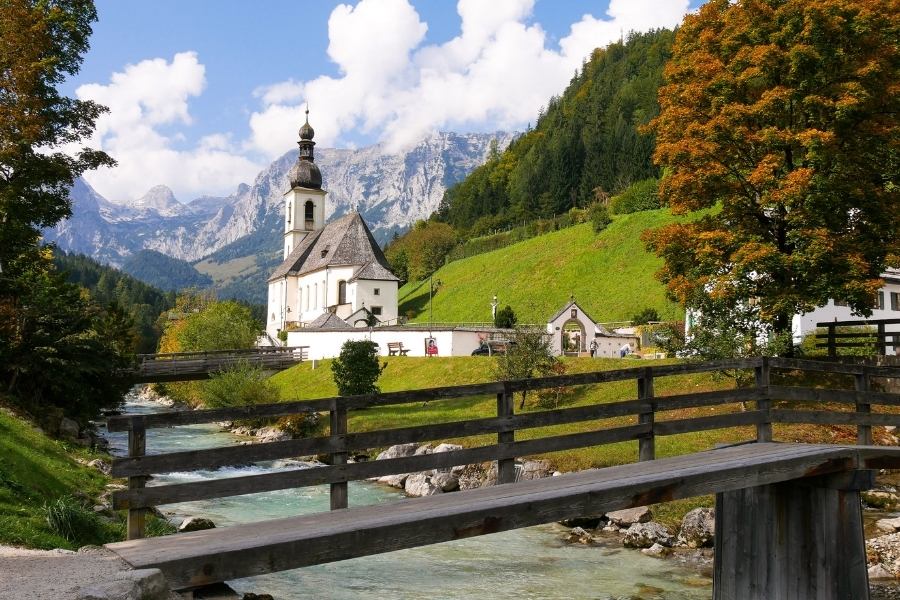
NOTE: If your documents are not in German, you must have them translated by a provider offering German translation services. However, the translation of legal documents must be completed by a qualified and certified legal translator who is fluent in both the original language and German. They must also have a nuanced understanding of the legal systems of the documents they are translating and attest to the accuracy of the translation.
Applying for the Germany Digital Nomad Visa
As mentioned, there are two categories of the Germany digital nomad visa. First is the entry visa, which you will use to enter Germany. Once you arrive in Germany, you can apply for a freelancer residence permit.
Applying for Freelancer Entry Visa
Here are the steps to apply for the Freelancer Entry Visa:
- First, go to the nearest embassy or consulate of Germany in your area.
- Next, schedule an appointment.
- Submit the documents listed above. Some embassies might require you to submit additional documents aside from those listed above.
- On your appointment date, submit the application form and all the documents.
- Pay for the visa fee. Some embassies might require you to pay it online, others through bank transfer, etc.
- Wait for your visa application to be processed, which should take several weeks or up to three months.

Once your application is approved, the embassy will issue the freelancer entry visa. The visa will remain valid for three months, so make sure to enter Germany within that period and apply for the Germany digital nomad visa once you are there.
Digital nomads from countries with visa-free entry agreements with Germany, such as the USA, Canada, Australia, Japan, New Zealand, Israel, or South Korea, don’t need to apply for an entry visa. They can travel to Germany and use their visa-free privilege to enter the country. Once they are in the country, get accommodation, acquire health insurance, and register with the tax registration office.
Applying for the Freelancer Residence Permit
When you’re already in Germany, you must register with the tax registration office because you need a Freelance Tax Number to apply for the Germany digital nomad visa. Once your tax registration is settled, here are the steps to follow to apply for the residence permit:
- Book an appointment with the Germany Immigration Office (Ausländerbehörde).
- Submit all the required documents, including the residence registration certificate, letters from prospective clients, and Freelance Tax Number.
- Show up on your appointment date and attend the interview.
- Wait for your residence permit to be processed. It could take several months for them to process the Germany digital nomad visa.
The most important factors the German Immigration Authorities will consider in processing your Germany digital nomad visa are your job prospects in Germany. That’s why you need to ask for a letter of intent from at least two of your clients. The letter should state your clients’ willingness to hire you while in Germany.
Once your Freelancer Residence Permit is issued, you can start living and working in Germany as a digital nomad.

Living as a Digital Nomad in Germany
Germany is a great country to live for digital nomads. It is rich in culture and has decent internet speed, an essential factor for digital nomads. Furthermore, the transportation system is very efficient and timely, allowing you to easily travel from one city to another if you want to explore while on a break from work.
Digital nomads can choose to live in the bustling cities of Hamburg or Berlin or the snow-capped Bavarian Alps. Regardless of where you will base yourself, you can expect a high quality of living while living as a digital nomad in Germany.
Even though Germany is one of the major economic players in Europe, living as a digital nomad in the country is not too expensive compared to many other European counties. In Berlin, a digital nomad can spend an average of $3,912 per month. Studio apartments cost around $1,362 per month to rent, which is not too expensive.
On those days when you’re not at work, you will find plenty to do around the country. Aside from exploring the country’s famous sites, you can chill out in a beer garden and drink ice-cold beer! So, if you believe you are qualified to work as a freelancer in Germany, you should consider applying for the Germany digital nomad visa.
Living in Germany is an exciting opportunity for digital nomads seeking to move to a beautiful and modern European country. In fact, there is now a growing community of digital nomads in the country, and you’ll find them meeting in coworking spaces, such as in big cities like Berlin.
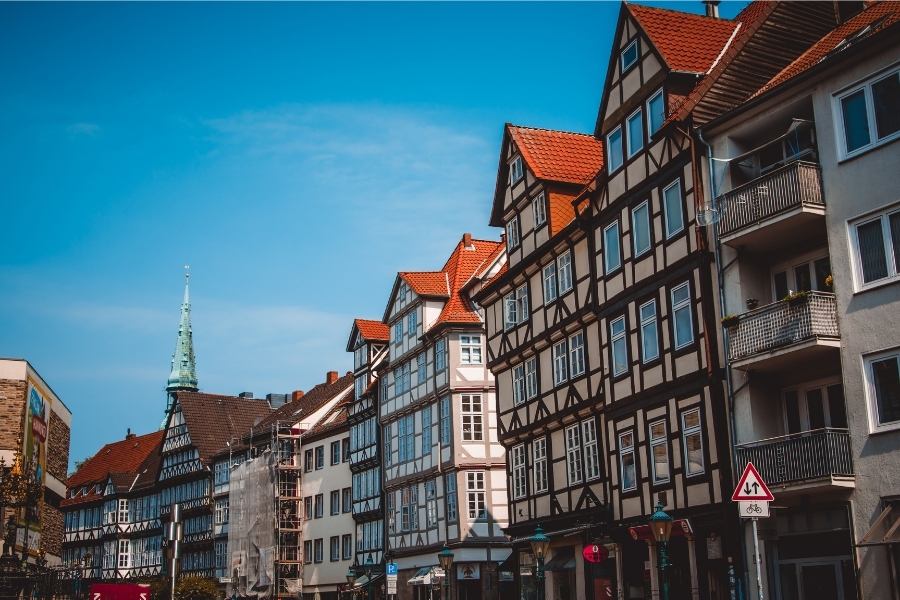
FAQs on the Germany Digital Nomad Visa
How To Register your Accommodation in Germany?
One of the most important requirements in the Germany digital nomad visa application is registering your accommodation in Germany, also known as Anmeldung. For this process, you must first look for a place to live. Once you find one, make an appointment with the Local Resident’s Registration Office (Bürgeramt).
Can Students Apply for the German Freelancer Visa?
Students holding a student visa are not eligible for the German freelancer visa since they cannot freelance while studying in Germany. However, if they find prospective clients who can provide a letter of intent, they can try to apply for the Germany digital nomad visa.
How Much Will It Cost to Apply for the Germany Digital Nomad Visa?
You will pay 60 Euros when applying for the entry visa. When you’re already in Germany, you will pay around 140 Euros to 260 Euros for the Freelancer Residence Permit.
More European Countries with Digital Nomad Visa
Germany is not the only European country with a digital nomad visa, other countries like Romania, Greece, Portugal, Croatia, Norway and many others have one. For a full list check this article:


